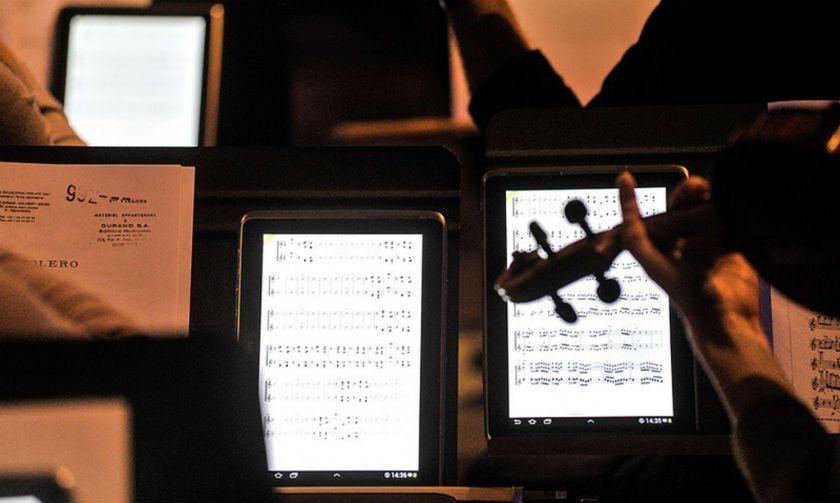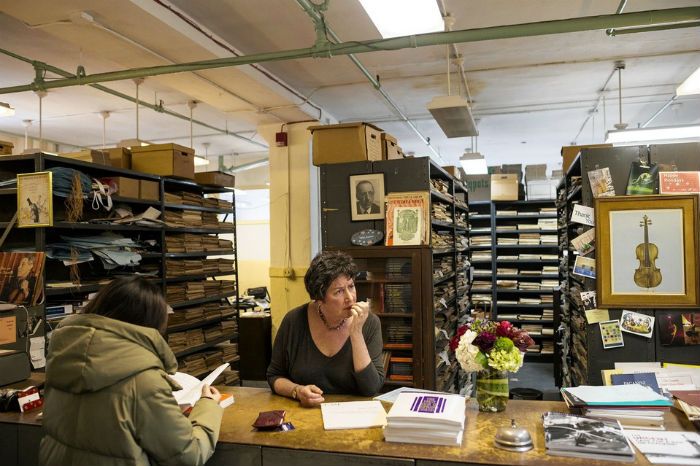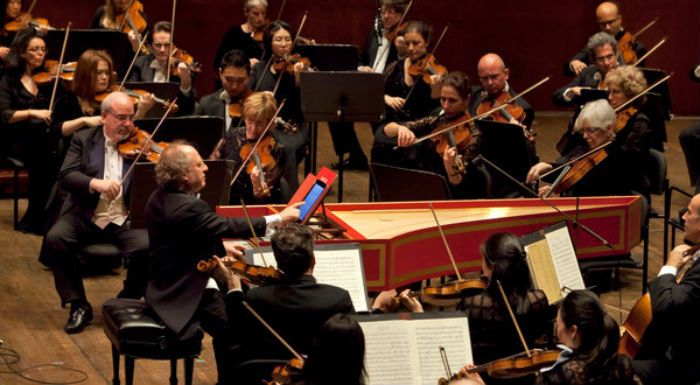
On Friday, 6 March 2015, New York’s last shop dedicated solely to selling sheet music is to close its doors for the last time. Frank Music Company, which has been serving the city’s musicians for almost 70 years, reports that it has seen a sharp drop-off in customers, from between fifteen or twenty per day a few years ago to just two or three. Since opening in 1937, the store attracted some famous musical personalities and built up a large collection of scores and other sheet music that is obtained through the donation of a benefactor.
The move is the latest in a series of developments suggesting that the way musicians read music is changing. The use of new technologies is enabling classical musicians to gain access to musical scores much more easily and at a fraction of the cost.

Musicians are taking advantage of websites like IMSLP.org, which provides a huge library of free musical scores that are in the public domain which have been scanned in by composers and can be downloaded as PDFs. As opposed to printing them out and having them on a traditional music stand, they can be read on an iPad or MacBook while rehearsing. The project was begun in 2006 by a music student and has since increased to contain over 80,000 classical works.
This innovative approach is combining the most modern technological advances with tradition. IMSPL also offers performers the opportunity to obtain the musical scores in the original handwriting of the composer, so you can learn Beethoven’s masterpieces from his own hand. It’s also been tremendously helpful in bringing lesser-known works to broader public attention since manuscripts or scores that would previously only have been accessible in one or two specialist collections can now easily be downloaded from anywhere around the world.
In 2011, Jeffrey Kahane’s decision to conduct the New York Philharmonic with an iPad from his harpsichord rather than using a traditional paper score made headlines. Since then, the use of Ipad’s, with some musicians having BlueTooth pedals to turn the pages of a score, is becoming more widespread and even leading some to speculate about the possibility of page-turners becoming redundant. Sam Haywood, the British pianist who regularly collaborates with American violinist Joshua Bell, prefers to take his Ipad on tour rather than relying on paper scores.

Other performers, such as the Borromeo String Quartet, have used the new technology to revolutionise the way they practice and prepare for shows. With the help of a Macbook, they can display each part to be played in a speicific piece on one musical score in a more practical way, without the need for frequent page turning. The quartet has also used the greater capacity of storage devices to digitally record all of their concerts, both for the benefit of their fans and also the members, who listen to previous performances to identify parts of the music requiring improvement.
One thing that seems clear amid these advances, however, is that traditional scores, albeit in a different form, are here to stay. There have been attempts at creating a new, and allegedly simpler, way to read music with the so-called humming bird system, but this has received a mixed response at best from most musicians.
While there are no doubt many benefits arising from the recent developments, it would be wrong to see the closure of shops like Frank Music as positive. For one thing, the fact that musicians of all levels, from the best-known performers to beginners, had to go to the same store to purchase scores served to make music shops a meeting place where contacts could be made. Patelson’s, another classical music store that closed in New York in 2009, used to benefit from this because it was located just across the street from Carnegie Hall. And beyond technological progress, another undeniable reason for the closure of Frank Music and other stores in recent years is the underfunding of the arts and culture, meaning that many who previously made a living in the classical music industry no longer have that option.
